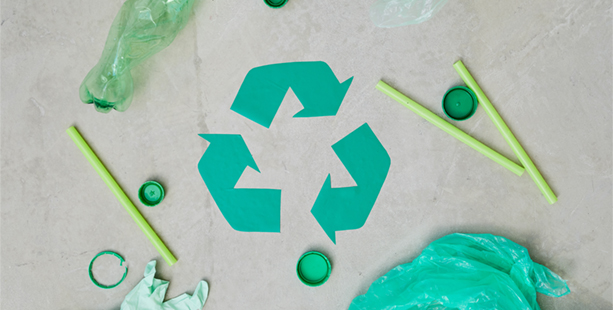
Opinion of the Chamber of Commerce

The Chamber of Commerce has published its opinions on three of the eight draft bills included in the ‘Null Offall Lëtzebuerg’ strategy, by which the Government aims to move Luxembourg to a circular economy based on the responsible and sustainable management of our resources and waste. The draft bills are: No. 7659 on waste (the ‘waste’ draft bill); No. 7654 on packaging and packaging waste (the ‘packaging’ draft bill); and No. 7656 on reducing the environmental impact of certain plastic products (the ‘plastics’ draft bill).
The Chamber of Commerce welcomes the inclusive process and constructive discussions between the Government and the stakeholders concerned by these draft bills, and fully supports the key principles driving them, such as resource management and conservation, environmental protection, and the circular economy.
The Chamber of Commerce regrets, however, that the legislator has often gone beyond the requirements of the three transposed European directives[1], or has deliberately deviated from the wording of their text, which does not contribute to a uniform transposition of these directives within the European Union, but above all has a negative impact on national economic stakeholders. Beyond the fact that the legislator does not seem to have taken into account all of the consequences for the latter, imposing additional and unilateral constraints on them risks leading to distortions in terms of competition and deteriorating their competitiveness.
A proliferation of collection points that could be costly, with no guarantee of quality sorting
The Chamber of Commerce questions the proliferation of collection points. The ‘waste’ draft bill calls for separate collection points in retail outlets of more than 400 m2, supermarkets of more than 1500 m2, and buildings with at least four residential lots. It fears very high collection costs, without necessarily improving the quality of sorting. A significant part of these costs would be transferred to local companies via extended producer responsibility[2], which would further deteriorate the international competitiveness of the latter.
The Chamber of Commerce also fears that these collection points could become an element of competition between supermarkets, which could be pressured to accept any type of waste from customers. This would undoubtedly have an impact on the quality of sorting and would counteract the technical potential and economic feasibility of more centralised management models. Thus, instead of increasing the recycling rate as intended, it could simply increase costs for all stakeholders, while decreasing the recycling rate. In order to avoid such undesirable consequences, the Chamber of Commerce suggests instead positioning open collection points in supermarkets or residences in a way that is complementary, not additive, to existing collection systems, focusing for example on excess packaging.
A deposit-refund system still too vague to guarantee meeting the end goal
The Chamber of Commerce has reservations about the introduction of a deposit-refund system in Luxembourg, as foreseen in the ‘packaging’ draft bill. While at first glance it may appear to be effective in terms of waste prevention or achieving certain returns or recycling rates, many parameters may determine the success, or not, of such a system from an environmental point of view. In addition, the burden on businesses in terms of initial investment and permanent operating costs is real.
According to the Chamber of Commerce, establishing a deposit-refund system by law, without knowing the practicalities, seems somewhat premature at this stage, knowing that the preliminary studies and analyses that are indispensable to determine an efficient system for Luxembourg have not yet been completed. The Chamber of Commerce insists on the fact that Luxembourg cannot go it alone and must take into account the systems put in place by its neighbouring countries, so as not to fail to achieve the end goal sought through the introduction of a deposit-refund system.
Additional constraints that risk harming the competitiveness of national stakeholders
The 'plastic' draft bill goes beyond Directive (EU) 2019/904 by imposing on Luxembourg's economic stakeholders additional restrictions in terms of putting single-use plastic products on the Luxembourg market. The draft bill foresees a 20% reduction in their circulation on the market between 2022 and 2026, followed by an annual reduction of 10% from 2026. The Chamber of Commerce cannot be in favour of such an additional constraint, which could have an impact on the competitiveness of Luxembourg companies. It therefore requests that the wording of the Directive be respected and they be deleted, and hopes that, at a minimum, these objectives were set in a pragmatic manner in consultation with professionals in the sectors concerned.
A health and economic crisis context that cannot be disregarded
Finally, the Chamber of Commerce would like to underline that these draft bills are situated within a very specific health and economic context and that manufacturers have not yet necessarily succeeded in developing products that respect both the required health safety measures and the environmental obligations. This is why the Chamber of Commerce is asking for a moratorium, or at least a transitional period, for the sectors most affected by the current crisis, such as HORECA and the events sector.
[1] Links to the EU directives transposed in the three draft bills: Directive (UE) 2018/851, Directive (UE) 2018/852 and Directive (UE) 2019/904.
[2] According to the principle of extended producer responsibility established by law, manufacturers and importers are obliged to take responsibility for the waste of the products they put on the market. They are in fact responsible for effective handling of it and for achieving re-use and recovery targets. To do this, they can either take on this responsibility themselves or become a member of an accredited organisation, which takes on this handling.


